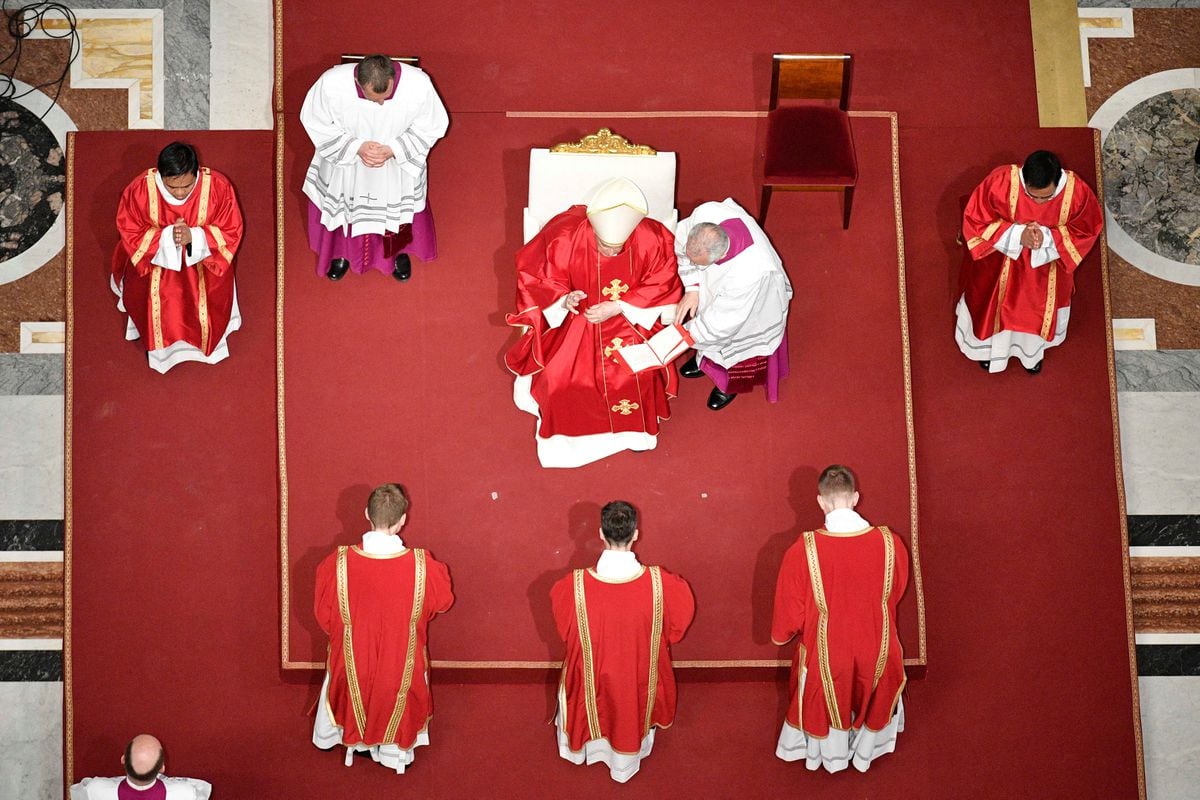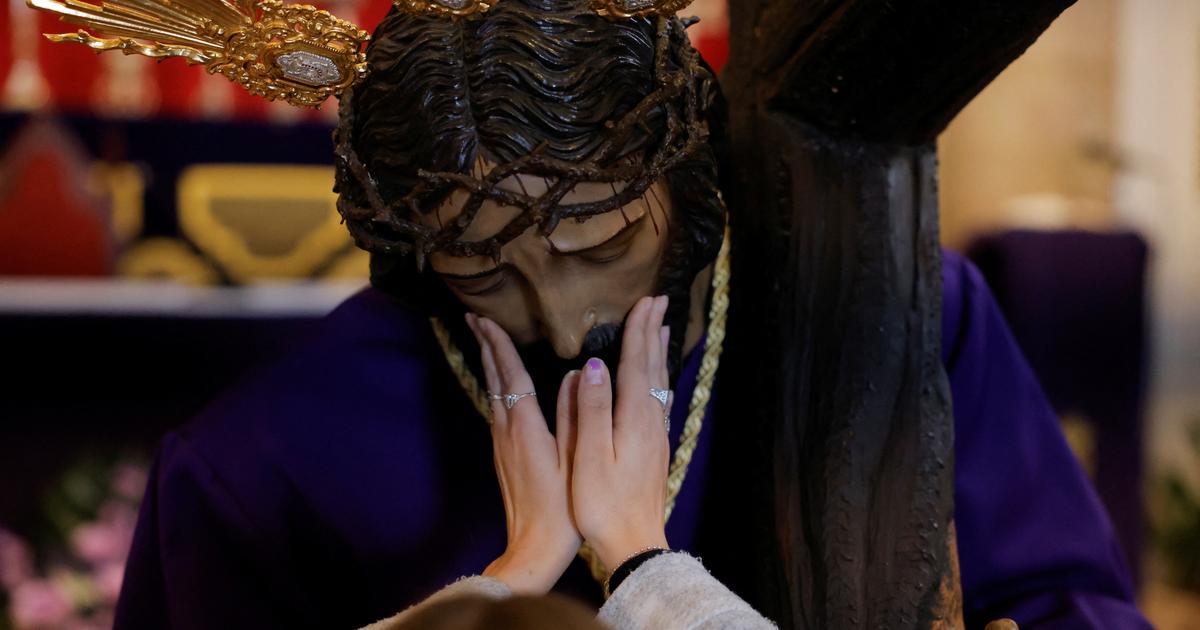Today, as in ancient Rome, we look forward to the arrival of the dates that for many are the happiest on the calendar.
With the year that is ending, we are preparing to perform the passing rituals that we have learned since we were little.
Whether they have a more sacred or profane component for us, these occasions show us that time inexorably passes and that we should enjoy it, while we can.
More information
Christmas is a Roman holiday
The Romans were fully aware of these ideas and already reserved their most beloved festivities for the end of the year, although, surely, for reasons very different from ours.
Because, let's be clear, the Roman Saturnalia do not come directly from our Christmas, although some customs, such as lighting the streets and exchanging gifts, remain.
Christmas is celebrated every December 25 because of the relationship that the date has with the birth of the Undefeated Sun god, established in a preeminent way from the third century and against whom the Christians fought propagandistically by making Jesus see the Sun of justice that illuminates the world.
This Christian celebration is attested for the first time in a manuscript of the year 336, although surely the new practice developed from the beginning of the fourth century under the influence of the religious tolerance of the Emperor Constantine.
The date of the Saturnalia, on the other hand, does not come from that rebirth of the Sun god, the winter solstice, or with any of the aspects or qualities of that god.
The
Saturnalia
, held on 17 December, were very present in the religious calendar festival commemorating the worship of the god Saturn.
He was one of the great divine fathers of Roman civilization.
So much so that the Romans themselves thought that he had reigned on the top of the Capitol Hill centuries before they, the line of Aeneas the Trojan, settled there.
Saturn, whose name came from
sero, satus
—sowing—, was the god who protected the seeds just scattered in the fields and which had to withstand the cold of winter before they began to grow.
Saturn was imperiously asked for his protection;
Let's not forget that the Roman was an eminently agricultural society, especially in its origins.
Els Enfarinats Festival in Ibi (Alicante), on December 28, inspired by the Saturnalia of ancient Rome. Pablo Blazquez Dominguez;
After the winter planting - a season that, according to Roman notion, began in early November - farmers could finally rest for a few weeks from the hard work in the fields.
Precisely for this reason the beginning of the Saturnalia celebrations was synonymous in Rome with the well-deserved rest that was coming, bringing with it the party and the disinhibition typical of someone who has been working hard all year and needs a break.
Thus, at least from the year 497 a.
C., according to the historian Tito Livio -although it was probably before-, the Romans came together to celebrate this festival spontaneously, filling the houses with light, to fight against the darkness and the winter cold.
The party doesn't last forever
But unfortunately, happiness and party don't last forever. At the end of the III century a. C., Rome was immersed in the most serious warlike conflict it had ever suffered: the Second Punic War, which faced the Carthaginian Hannibal for control of the Mediterranean. At the end of the year 217 a. C., having already suffered several important military defeats, the Romans turned to Saturn and implored him to protect them. Then a
lectisternium was held
, an elaborate ritual in which a feast was offered to the statue of the god Saturn and which shows us the tremendous despair in which they were plunged. He was only used in moments of great crisis. For example, centuries later the philosopher Emperor Marcus Aurelius would also resort to this rite when Rome was facing the first pandemic in history with thousands of victims succumbing daily to the plague.
Luckily for them, as we all know, the Romans would end up defeating the Carthaginians with the help of Saturn and many other gods and goddesses who protected them and gave them the legitimacy to dominate the world. From that moment, sources say, each year the festivities in honor of Saturn continued to be celebrated with joy, officially adding a great
convivium publicum
, a splendid banquet that all citizens could attend.
It is not surprising that we have several ancient testimonies that clearly mention that Saturnalia was considered the happiest day of the whole year. Children did not sit and listen to their teachers, judges did not pass sentences, and even slaves — though certainly not all — were spared from obeying their masters for a day. The contrasts and the inversion of the established order gradually took over the holiday in the private sphere.
The streets were illuminated, people danced and drank to combat the cold, forgetting for a day the traditional tunics and togas to wear brightly colored costumes that would be observed with suspicion on any other day.
The rules were relaxed, gambling was allowed - which used to be forbidden - and everyone together sang and shouted in unison:
io saturnalia!
"Happy Saturnalia!"
Christmas in Ancient Rome
In families, at least in the good avenues, the children commanded their parents and the slaves were served by their masters. Everyone gathered to celebrate happiness at banquets that ideally, according to Roman virtue, should not exceed the number of Muses — nine — nor lag behind the number of Graces — three. Small gifts were also given, especially to children, in the form of terracotta figurines known as
sigillaria
, and raffles were held in which even the emperors used to participate, offering large prizes such as ten pounds of gold and also others as mocking as ten flies.
But to the Romans a single day of the most important festival of the year was not enough. Especially after the Julian reform of their calendar, they began to celebrate the Saturnalia between December 17 and 19, something that was made official by Emperor Augustus. Even so, with the passing of the centuries and completely spontaneously, they even lasted until the 23rd, keeping the party and the laughter in the streets.
However, not everyone liked the excessive happiness of the Saturnalia. These had among their greatest detractors such important figures in Roman history as Seneca or Pliny the Younger. But while the first strongly warned of the dangers of giving in to collective and excessive insanity, the second, more calm, recognized in one of his letters that he advocated seclusion, moving away from the shouting so that: “... not even they bother my studies or my attitude interrupt your fun. "
At this point, surely we can all think about the possible familiarities that we see from our present day on this holiday.
Today's Christmas undoubtedly has components that we can relate to;
like meals, gifts, or joy.
However, these common points could be found in many other Roman festivals.
It is only the fact that the dates of celebration of both festivities are close that induces us to associate Christmas with Saturnalia.
Its great popularity in the Roman world also undoubtedly influences it.
That was such that its celebration continued even during the 5th and 6th centuries, already in a totally Christianized society, although stripped of its most religious and profound character.
The culture of a society does not change overnight, so it is possible that some of the traditions that were preserved impregnated some of the Christian rituals and celebrations, but in such a subtle and diluted way that it dissipates the interest of the morbid historical.
The Romans, so different from us in some ways but so similar in others, continue to arouse passion and curiosity.
Their festivities come to us, even if only in the form of memories, and allow us to see that 2,000 years ago normal people lived with dreams, desires, desire to enjoy and live.
Let us continue to live for them, whatever the cost, with hope.
Let's toast together and say:
io saturnalia!
Néstor F. Marqués
is the author of
Let the gods help us!
and
Fake news in ancient Rome
(both in Espasa Calpe)









